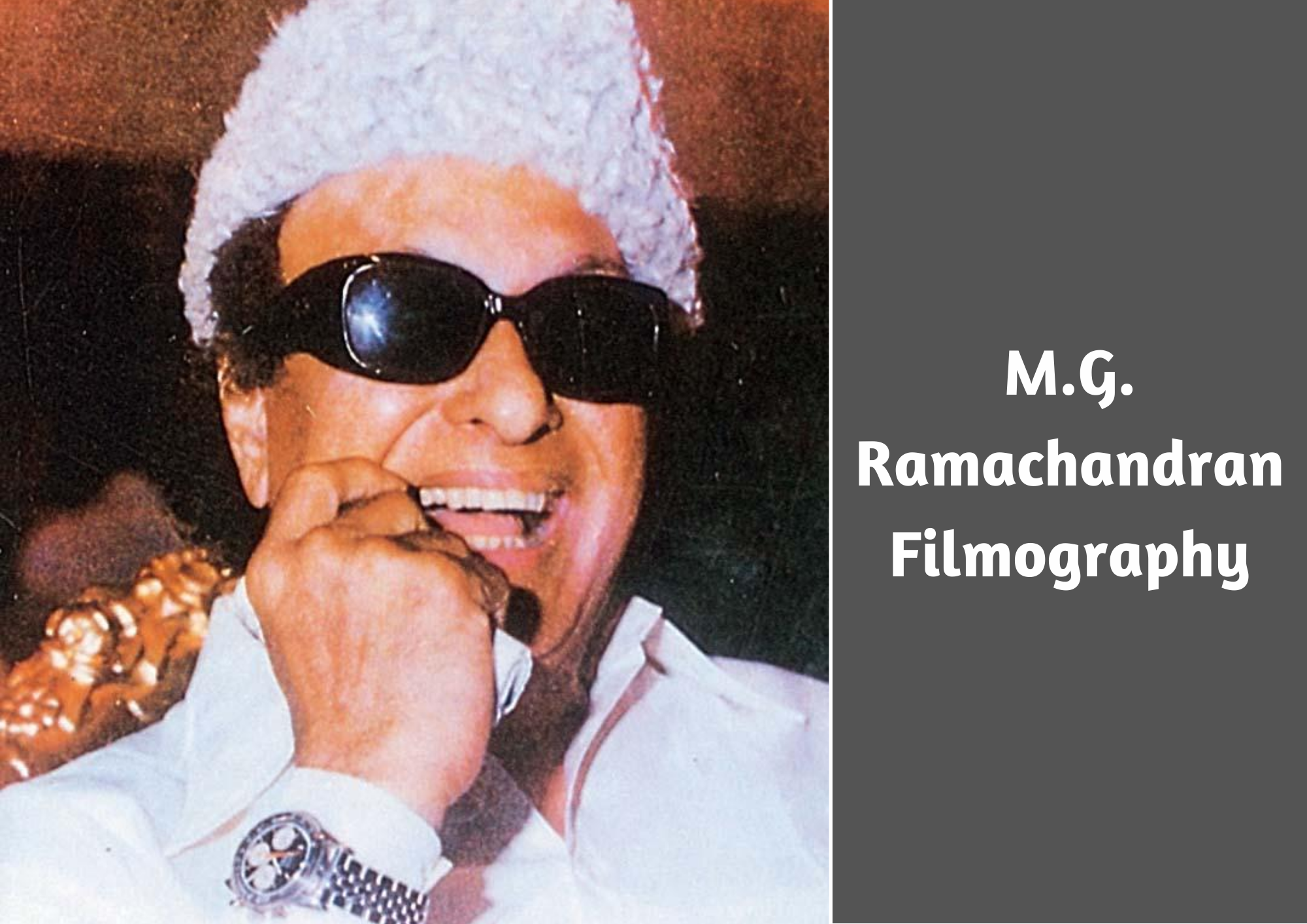
M.G. Ramachandran Filmography
M.G. Ramachandran, fondly referred to as MGR, remains an enduring icon in Indian cinema, particularly celebrated within the Tamil film industry. His filmography spans several decades and is marked by iconic performances, significant cultural impact, and a lasting influence on politics and society. This article delves into the remarkable filmography of M.G. Ramachandran’s trajectory evolved from a charismatic actor into a cherished leader and cultural icon, marking a transformative journey.

Source: Vocal Media
Early Career and Rise to Stardom
MGR began his career as a stage actor and eventually transitioned into the film industry in the late 1930s. His initial roles were often small and uncredited, but his talent and screen presence quickly garnered attention. It was during the 1950s and 1960s that MGR rose to prominence as a leading actor, dominating the Tamil film industry with his powerful performances and charismatic persona.
One of his earliest notable roles was in the film “Rajakumari” (1947), where he played a supporting role. However, it was films like “Marudhanaattu Ilavarasi” (1950) and “Malaikkallan” (1954) that solidified his reputation as a versatile actor capable of handling both action-packed roles and emotionally nuanced characters. MGR’s ability to connect with the audience through his acting prowess and on-screen charisma set him apart from his contemporaries.
The Era of Blockbusters
The 1950s and 1960s marked the peak of MGR’s career as an actor. He starred in a series of blockbuster films that not only entertained but also resonated deeply with the masses. Movies like “Nadodi Mannan” (1958), “Enga Veetu Pillai” (1965), and “Adimai Penn” (1969) demonstrated his versatility as an actor, portraying characters spanning from a daring hero to a tender lover.
MGR’s on-screen persona often portrayed him as a champion of the downtrodden and a defender of justice. This portrayal, coupled with his impeccable dialogue delivery and action sequences, made him a true icon of Tamil cinema. His pairing with leading actresses of the time, including Padmini, Saroja Devi, and Jayalalithaa, further contributed to his star power and cemented his status as the ultimate hero of the masses.
Cultural Impact and Political Journey
Beyond his cinematic achievements, MGR’s influence extended into the realm of politics and social reform. His films often carried messages of social justice, upliftment of the poor, and the empowerment of women. This thematic consistency resonated deeply with the audience, making MGR not just a beloved actor but also a cultural symbol.
During the early 1970s, MGR ventured into politics by establishing the Anna Dravida Munnetra Kazhagam (ADMK) party, which subsequently evolved into the All India Anna Dravida Munnetra Kazhagam (AIADMK). His political career paralleled his film career, with his popularity among the masses translating into electoral success. MGR held the position of Chief Minister of Tamil Nadu for three consecutive terms, from 1977 until his passing in 1987.
Legacy and Continued Influence
MGR’s legacy as a cinematic and political figure remains unparalleled in Indian history. His films continue to be celebrated for their timeless appeal and social relevance. The themes he championed in his movies—such as justice, equality, and compassion—remain relevant in contemporary society.
Even after his passing, MGR’s influence on Tamil cinema and politics persists. His fan base, known as “MGR rasikarargal,” continues to hold him in high regard, organizing events, screenings, and commemorations in his honor. His films are regularly showcased on television channels and at film festivals, ensuring that new generations of audiences discover and appreciate his work.
Films
Here are some of MGR’s most notable films that showcase his diverse talents and enduring appeal:
Nadodi Mannan (1958): A classic that highlights MGR’s dual role as a prince and a commoner, with memorable songs and impactful dialogues.
Enga Veetu Pillai (1965): Known for its family-centric storyline and MGR’s charismatic portrayal of a protective elder brother.
Adimai Penn (1969): Features MGR in a dual role as a prince and a compassionate common man, emphasizing themes of justice and equality.
Rickshawkaran (1971): A socially relevant film that addresses the exploitation of rickshaw pullers and showcases MGR’s commitment to social justice.
Ulagam Sutrum Valiban(1973): An action-packed adventure film that showcases MGR’s versatility as an actor and his ability to handle complex roles.
Each of these films not only entertained but also reflected the social and political ethos of the times. MGR’s ability to blend entertainment with social messaging contributed significantly to his enduring popularity.
M.G. Ramachandran’s filmography is a testament to his unparalleled contribution to Indian cinema and society. From his humble beginnings to becoming a cultural icon and political leader, MGR’s journey is one of resilience, talent, and unwavering dedication. His films continue to resonate with audiences, and his influence on Tamil Nadu’s cultural and political landscape remains indelible. MGR’s legacy serves as an inspiration for generations of filmmakers, actors, and politicians alike, making him a true legend of Indian cinema.




